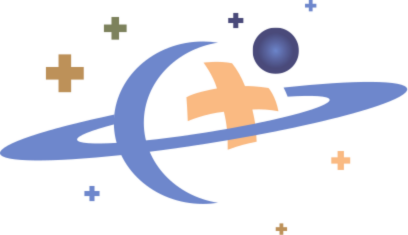As of: July 2023
User Centered Design
In 2022, a requirements analysis was performed. For this purpose, interviews were conducted with a focus group consisting of general practitioners in order to work out how exactly the target group would like to use the SATURN portal. In further workshops, a list of requirements for the portal was created on this basis. Taking into account the feasibility on the development side, a prioritization of the individual points and the planning for the implementation of the front- and backend took place. After the completion of the first prototype, usability tests with the same focus group are planned. Preparations for this are already in progress and case vignettes are being created that can be entered into the portal as examples.
Implementation of the SATURN Portal
Based on the requirements analysis, the implementation of the portal started in 2023. The goal is to provide a first prototype for the usability tests. For this purpose, the necessary links to the case database and the AI modules are created in the backend. In the frontend, an input mask will be developed that retrieves all required medical data. The display of results as well as a forwarding to SE-ATLAS or the Order Sets will also be implemented. During the development phase, short iterative tests are carried out and the functionality is adapted accordingly.
Common Data Model
In order to map the medical data in a standardized way, a common data model (CDM) is developed and subsequently validated by clinical experts. This is based on the Observational Medical Outcomes Partnership (OMOP) CDM, which represents the current state of scientific knowledge. For this purpose, diagnoses, symptoms, laboratory values and other relevant parameters are formalized with the help of internationally recognized terminologies. The aim is to create an internationally standardized data model that can also be used in this form for future research. Currently, the CDM already exists and is in the second iteration of testing by clinicians. Subsequently, the clinical data from the university hospitals in Dresden and Frankfurt will be transferred to the CDM via Extract-Transfer-Load processes (ETL processes) and thus made uniformly usable for the AI modules.
AI Modules
The preparation of the rule-based system began in 2022 and is ongoing. For this purpose, medical guidelines were automatically screened for diagnostic rules using Natural Language Processing (NLP). To extend the methodology, rules are also manually extracted from the guidelines and interviews are conducted with medical experts who describe their diagnostic pathway. From the set of extracted rules, a rule system is created that can be used to support diagnosis.
The implementation of case-based reasoning has been ongoing since 2023, and a literature review has already been conducted to examine the methodology in terms of diagnostic support. Further implementations regarding similarity analysis require access to clinical data.
The implementation of the machine learning module has also started in 2023. For this purpose, possible usable models are being examined and evaluated. Likewise, sample data sets will be used to test which form of input data can be used. Again, clinical data will be needed to finalize the models to fit the appropriate data.
